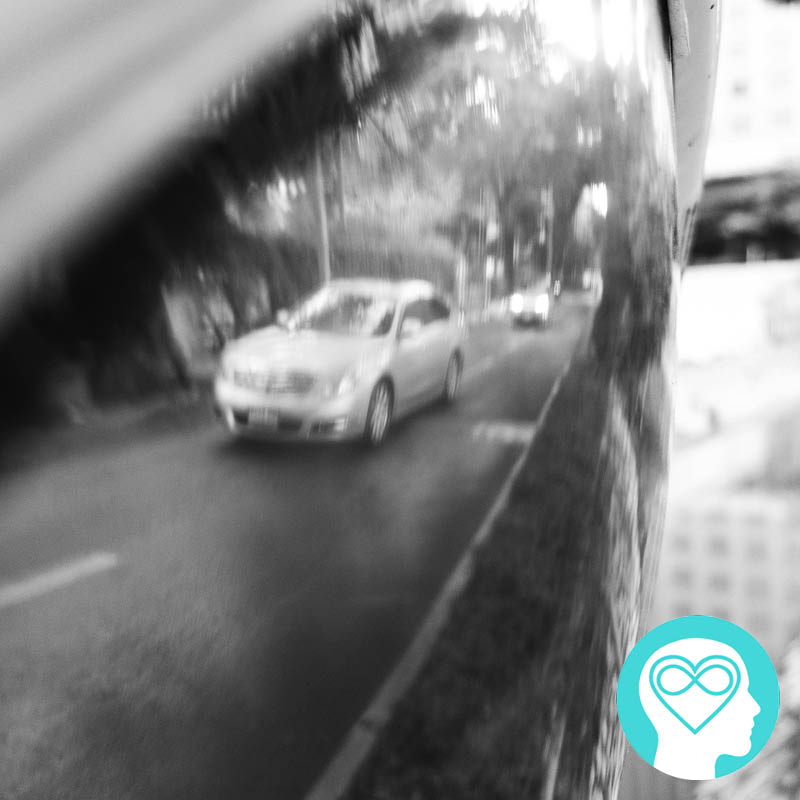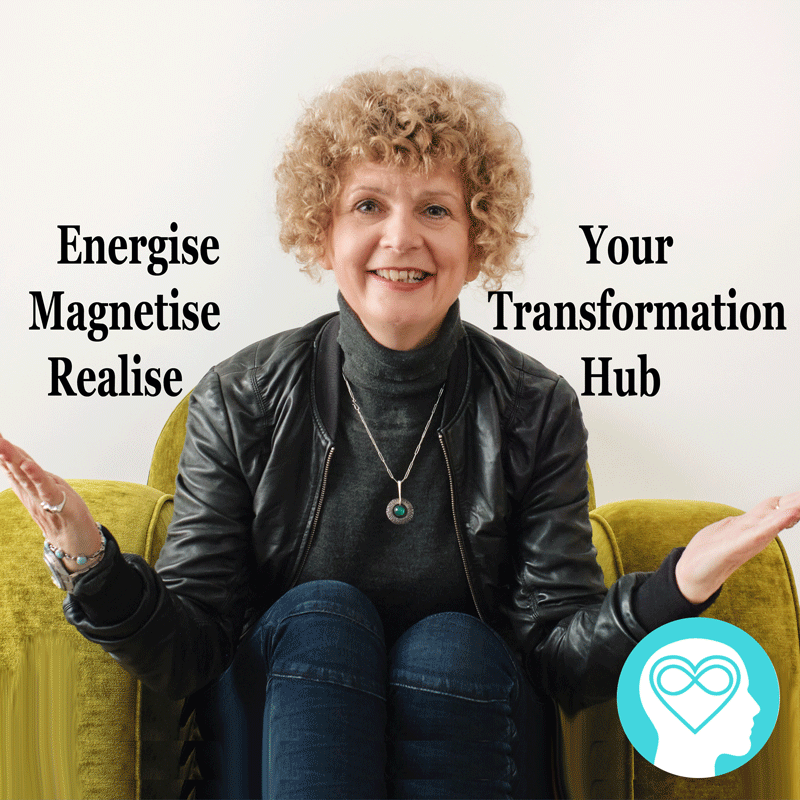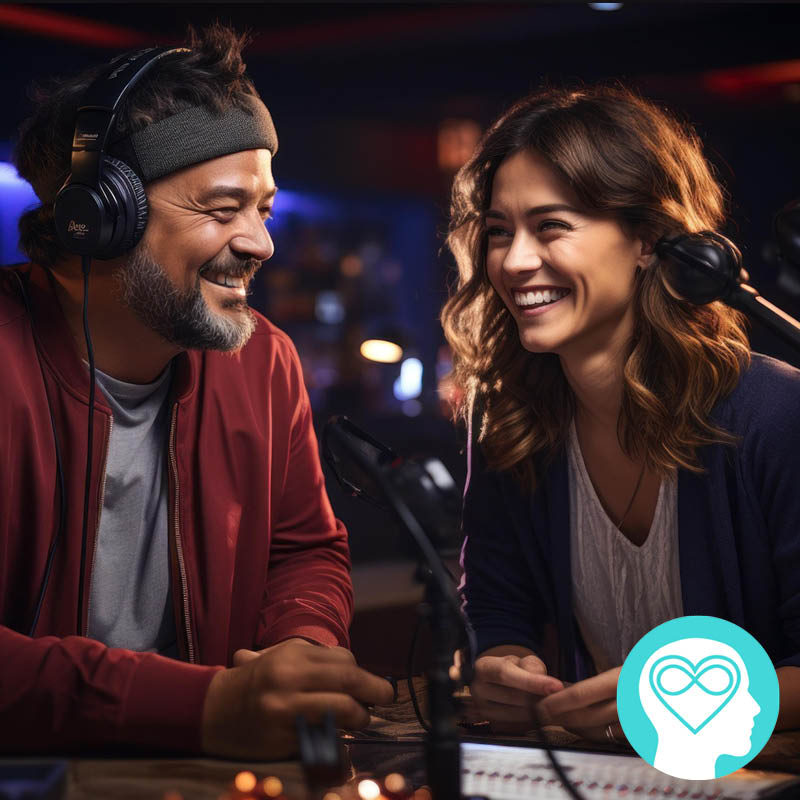Episode Transcript
[00:00:03] Welcome to the making of you. I'm Alexandria, founder of youf Transformation Hub and the Mastery Project. And as you know, all of my podcasts are about the tools, insights and wisdoms to help you become the architect of your own life. And have a lot of fun doing it. Okay, this is episode 41, and today we're looking at the five whys we need to understand the Law of Reflection.
[00:00:33] Okay, so diving in here, number one, what is the Law of Reflection? Well, yes, it's perhaps obvious, but the way that we treat it might not be so. Of course it's looking at what is happening. It's observing what's happening in our outside world and then saying to ourselves, what does that mean to us, us? Now, a lot of people will say it is a foundation of the inner and outer truth merging. And I think that's actually quite accurate. But it is also or can become a little bit of a mental mind field. So the key to being able to learn and grow from the Law of Reflection is very much got to stop, start within yourself, and in a lot of respects, stay within yourself. Why? Because if we allow the Law of Reflection to become an opportunity to judge ourselves or judge others or use it as a way to blame, then we're probably not ever going to get the true wisdom or the benefit from the Law of Reflection. So the key is in number one, perhaps don't call it the Law of Reflection, call it the law of learning. So look at anything you see outside of yourself as neutral. It's a observation of what's happening, and it is the key to help you learn about yourself. And so it's not an opportunity for your ego, your limited self to dive in and start judging you and start telling you all the things that are wrong with you, or to start or strike up conflicts with your environment and start blaming everything outside of yourself, particularly if you're not very happy.
[00:02:35] So, yes, honesty is the best policy, but it is also, as I said, to be the observer. It's not to be someone who just leaps into judging. So the Law of Reflection is asking you, what do you see out there? And it is asking you to faithfully represent that without any baggage, judgment, or limited opinions. Okay, so number two, right, why do we actually want to look at the Law of Reflection? Well, because it is actually a very hidden healing tool. And for number two, the key to use the Law of Reflection is to take what we observe and to look at that from not only a truth or a fact or an observation, but also how we feel about it. Now, a lot of people in their lives will say, well, reflections are just passing by, all right? And I would agree, because we are surrounded by a continual flow of energy. But we've got to remember that continual flow of energy or whether we have that continual flow of energy within ourselves, is all to do with the degree of alignment that we have with ourselves. So, you know me, I'm big on heart, mind alignment, always talking about the balancing benefits of that. So we can see that there's a flow of events, a flow of interactions, a flow of consciousness, and ways to learn in our lives by looking outside and observing. But it's always going to be a function of what is actually going on inside ourselves. And that's why if, for example, you were to look at a crowd of people because of your learning path and your consciousness, you might single in on or hone in on, you know, focus on someone, and then you ask another person to do exactly the same thing, and they'll look in a completely different direction or at a completely different circumstance. So the key is that uniqueness means that you're getting a unique learning experience for yourself and that no two people often are the same or their takeaway from the circumstances isn't the same.
[00:05:04] So definitely look at it as an opportunity to learn. Right, let's get into examples. So the law of reflection is helping you build your sentience, builds your capacity to feel, builds your understanding of how your external is just a continuation of your internal consciousness. And also it is a way to, of course, improve and expand and transform.
[00:05:32] So if you said to me, I'm having a bit of a shit day, and then someone sits down next to me at lunch and then starts moaning and. Or starts criticizing the people they're working with or their life in general, There is a temptation at that point to say, God, what a downer. That person isn't contributing. They're just sort of bringing my energy down by moaning. Now, that is true, all right, in the observational capacitance. But we can go one step further with the law of reflection and go, how am I actually if I went inside because this guy is a function of what I'm currently believing in myself, how can I actually look at where I'm bringing myself down? Or perhaps the fact that I have this reflection in my life for a reason.
[00:06:30] So if we're not going to judge or blame, all right, we don't go, that guy's bad, or he's a downer, or I'm going to move because he's a pain in the ass before you get up and leave. If that's what you want to do, then just say right then, what part of me is holding on to dragging myself down? What attitudes drag me down? And you might surprise yourself by simply saying, that's something for me to acknowledge. I don't have to share that with anyone else. And that I can actually make a difference in my own life by recognizing and answering that question.
[00:07:08] So you could say to yourself, well, oh, oops, I was on a bit of a downer today. I've been late, I've been flustered, I missed the bus, I, you know, I didn't get to work on time.
[00:07:22] All of these things put me in not the best of mood. And so what did I do? I ended up attracting someone else who was moaning. So actually, gosh, it's a resonant or a rather aligned reflection, if I'm honest. And that's why the law of reflection sometimes is misunderstood, because people often say, oh, well, you know, it's out there, that's wrong and you've just got to remove yourself and things like that. Well, well, you might choose to do that, but you might also just go, what's the learning? And also say, hey, I'm not a victim of my circumstances.
[00:08:04] So the law of reflection, number two, see it as neutral, see it as observations, see it as a way to learn about what you think and what you feel.
[00:08:17] Okay, number three, right then, well, if we get something in our world that's quite in our face, all right, then we probably have got one of two obvious ways to deal with that now. One is to respond. And that means to go, well, that's interesting. And that probably promotes a more balanced perspective or our capacity to stand our ground or our capacity to be patient and to listen, for example, those type of responses is, it can also mean that we basically just react and go, I don't need to deal with this, I don't need to put up with this and perhaps walk away. Or we can also of course pile in and start arguing or start defending ourselves.
[00:09:03] So I always say to people, if you're in that situation, it's really handy to again use the law of reflection because it can really help you get your point across and also keep a friend or keep a neutral circumstance happening in your life when it could have easily turned into a long term problem, a bit of baggage emotionally or a conflict. So the key with the law of reflection there is simply to say, what am I resisting? All right, because if you attract someone into your life who's quite angry or on the war path, kind of wants to take it out on someone. It doesn't have to be you. You haven't done anything but that. You're just first in line, if you will. Then it's really good to say, what is the reflection of the resistance? So that person's angry. So what parts of my life am I dissatisfied with or angry with that I'm not really facing right now? Now you might say, well, that doesn't help me if someone's yelling at me. Well, what the law of reflection immediately does is it allows you to step back out of circumstances, not because you are absenting yourself or in denial, but because you're not in that position where you automatically react. So the law of reflection is a way to help understand another person when it's clearly, as I said, it's got nothing to do with blame or fault or anything. They're just in a bad mood and you're first in the queue. So it's about helping you keep your heart connection intact, be able to respond rather than react. And so it doesn't sort of roller coaster or momentum, like snowball into something extra and something more problematic or something that is very difficult to forgive. So the law of reflection there says, if you meet someone in a lot of anger, resistance in a lot of conflict, to where you are, then what is the key element? Well, it's to learn to respond to resistance rather than react to it. And also look at your own resistance. You might say, actually, I resist being patient with people like this because I don't like their behaviors. Or I resist being able to communicate once they've sort of let off steam, if you will, to be able actually to have the courage for myself to say what I feel without perhaps provocation or without judgment. So it might be that you go, I'm really proud of myself because actually, after that person downloaded, I was patient. I was in observing. I was looking at the reflection, and I just said to myself, I do have the courage to say, this isn't my fault in the sense of, I'm sorry you feel that way, but, you know, it's nothing to do with me as far as I'm concerned. But I understand that you're, you know, you're unhappy. So you can address it with a degree of neutrality and balance, and it doesn't affect you for the rest of the day. And it also helps you become quite sort of enlightened in your own perspective because you've risen above potential conflict and at least remain neutral or Even become encouraging and compassionate.
[00:12:26] Okay, number four. Right, then. So sometimes the law of reflection is, what can I say? Beautiful, you know, exciting. It's generous. It's a bolt of lightning out of the blue. It's love at first sight. Doesn't have to be aspects that we don't want to see or we would like to avoid. So I think that's a really good point for people because a lot of people think the law of reflection is actually a way to deal with problems more than to look at our state of receiving. So sometimes the universe is, you know, attempting to give us a few cosmic nudges. And if we are a bit of a crap receiver, perhaps you've been brought up with the consciousness. It's better to give than receive. For example, then you can find it difficult to receive a compliment or difficult to receive a gift or a difficult aspect of not receiving unconditionally for yourself. So the law of reflection can actually bring your heart and mind together. It can also generate that awareness within yourself. And you can laugh with yourself about the fact that you're not very good at receiving and that you're surrounded by a lot of generous or kind people. And you don't know how to deal with that because perhaps you've been a very independent person in your life or you had a very tough start in life, or you've just simply been brought up to think that you're selfish if you receive unconditionally for yourself. So the law of reflection can be very handy to help acknowledge the beautiful support and all the loving and helpful states of being or people around you, and to celebrate that and to say that connection, inner and outer, is a beautiful, loving, unconditional, and endless flow.
[00:14:14] Okay, number five. Well, one of the greatest gifts I think of the law of reflection is us being able to edit out the versions of ourselves that we no longer require. So I talked about earlier on the grumpy guy downloading on you. Well, you could say, actually, do you know what?
[00:14:32] Hand up. I can't say that I haven't, you know, sort of sat down and started moaning at some time in my life. And there's been someone else at the end of it. So basically you could say, hey, do you know what I'm going to do? I am. You know, when I feel like I want to moan, I'm going to sit inside myself and go, I'm choosing differently. So the law of reflection can be a wonderful way of showing us the person that we don't want to be and that we might be choosing to, or we're tempted to.
[00:14:59] So it really does help us build a higher consciousness life. Help us build and invest in the qualities that are going to create a more joyous and more fulfilling and a more unconditionally loving perception for ourselves and for those around us and the world around us.
[00:15:19] Okay, so it's been my great pleasure to talk about the Law of Reflection today, and I hope you've enjoyed the content. If you have, please don't hesitate to pass by your transformation hub for the podcasts. We've got, gosh, over 50 episodes now, so check out some more episodes there on the website. And also, if you would like some help with understanding the reflections in your life, then check out the Life Alchemy sessions. Giving Cosmic and Common Sense a wonderful collaboration there, and also giving the opportunity to make a wise, uplifting and purposeful next step in your life. Thank you very much.






